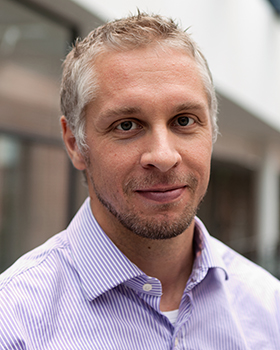Wannabe managing director becomes stubborn researcher
Jani Romanoff has got far by helping others, believing in his ideas, and possessing a limitless thirst for knowledge.

Professor Jani Romanoff, what do you research and why?
I study marine structures, which primarily means floating structures. I have concentrated on ships, but floating structures can also include offshore production platforms.
The purpose of our research is to find out how to make structures safe and durable. The marine environment is quite harsh: collisions with other ships and bridges, for example, can be forceful, and there is also wind, ice and huge waves which can break the frame of even large ships if they strike in the wrong place. In laboratories it is impossible to reproduce these conditions on a full scale, so we need to be able to calculate and model them using engineering tools.
How did you end up as a researcher?
When I was young, I watched a documentary on shipbuilding. There was something magical in it: how this final product – shining and glamorous but also technically demanding – can be made on a tight schedule and still with a profit left over.
So I started to study marine technology. The financial side of the field was also attractive, and I saw myself becoming a managing director, but the demanding nature of the technology involved began to fascinate me more and more. While carrying out my dissertation, I realised that I have a huge thirst for knowledge to which money takes second place. And this thirst for knowledge still hasn’t been quenched.
What have been the highlights of your career?
One highlight was when a doctoral candidate that I was supervising was invited to MIT in the middle of their doctoral work to give an invited lecture. And it is always wonderful when someone graduates and moves forward in their career. I have often said that if someone wants to move forward in this field, the best thing to do is to help others – in this way your own goal is accomplished at the same time.
Also, an even bigger thing is that, together with my colleague Heikki Remes, we have succeeded in killing multiple birds with one stone by creating a functioning ecosystem: our careers have progressed, our group has published in top-level publications and our postgraduate students have graduated within the time frame set and have obtained good workplaces immediately after graduating.
What are the most important qualities for a researcher?
A good researcher is curious and a bit stubborn. When all others turn back, one must be able to keep on going, right through the wall – only then can that new thing be discovered.
One must be critical but also open to both new ideas and the work of others. In both science and technology, one must be creative so as not to just end up doing the same as others are doing.
A researcher’s work is also becoming more and more comprehensive in nature. Researchers toiling away in isolation is a thing of the past: Good communication skills are important and project skills are needed because it is more and more common for projects to have a clear beginning and end.
What do you expect from the future?
We will without doubt continue with the work that we have been doing and obtaining good results for. I am, however, so goal-orientated that I must have a larger dream to be heading towards. Probably it will be related to the efficient computational analysis of structures. Once the goal is crystal clear, all that is needed is to work out the steps towards it.
Jani Romanoff and the other recently tenured professors at Aalto University will present their research during the multidisciplinary afternoon on 12 October. We hope to see you there!
Check the timetable and program here
Photo: Anni Hanén


